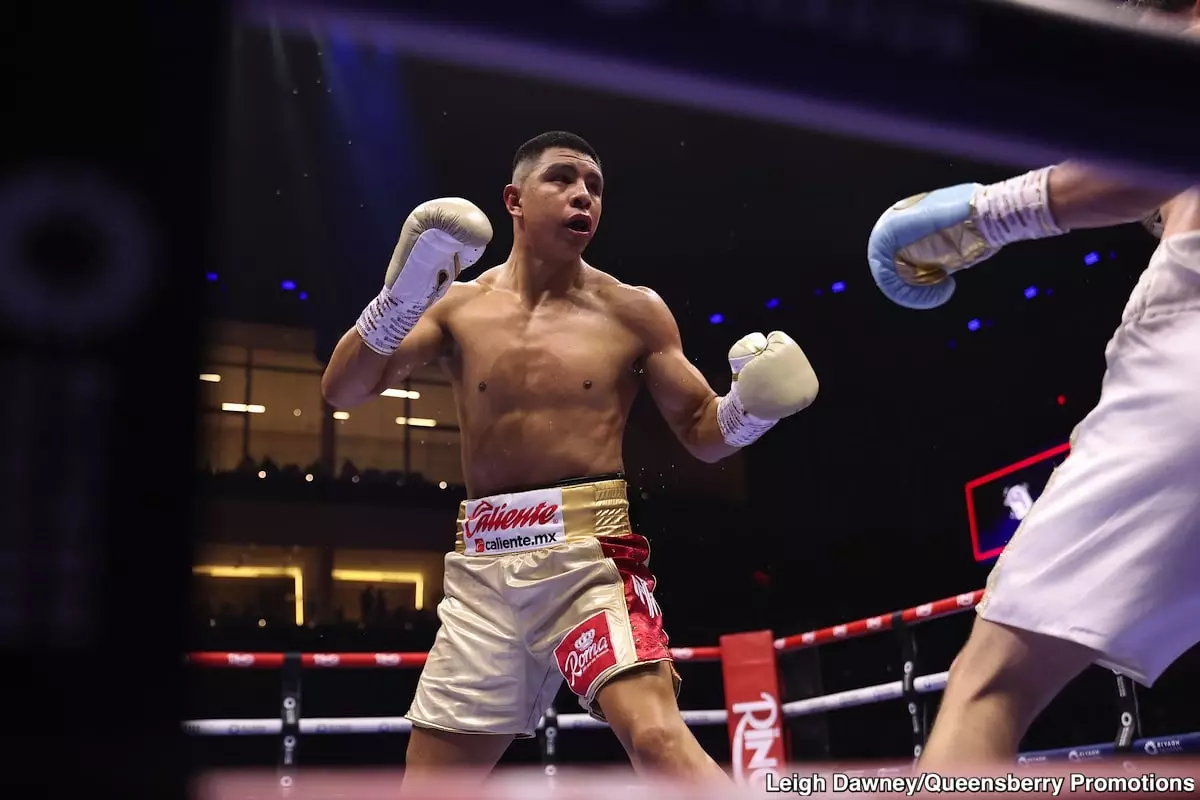In recent weeks, the boxing community has been rocked by news that Jaime Munguia, yet another fighter from Eddy Reynoso’s camp, has tested positive for performance-enhancing drugs. This incident marks the sixth time a fighter trained by Reynoso, who is celebrated for mentoring champions such as Canelo Alvarez, has found themselves embroiled in a doping scandal. Oscar De La Hoya’s comments punctuate the troubling nature of this pattern, calling into question both the integrity of the camp and the oversight of its leading figure, Reynoso.
De La Hoya expressed incredulity at the idea that six fighters from any single training camp could be linked to PED violations without something fishy afoot. His remarks reflect a growing skepticism not only towards Reynoso but also the broader implications for the sport as a whole. In an age where the integrity of competitive sports is paramount, how can fans and fellow fighters trust that those trained under Reynoso are competing fairly? For De La Hoya, it’s clear—there’s a shared culpability that looms over the gym’s environment.
Reputation at Stake: The Implications for Eddy Reynoso
The ramifications of these positive tests extend far beyond the immediate athletes involved. Each incident inevitably casts a shadow on Reynoso’s reputation and credibility as a trainer. The claim that one person could simply be guilty is easy to assert, but as accusations accumulate, the presumption of innocence frays. Boxing thrives on the honor and bravery of its fighters, and scandals of this nature can tarnish those ideals.
When esteemed fighters like Canelo Alvarez find themselves in the same camp as multiple offenders, the concerns are magnified. Surely, if six fighters under Reynoso’s wing have experienced a sudden transformation in strength and physique, or have been quick to shed weight, questions must be asked. This troubling trend suggests that a systemic issue may exist, making fans highly skeptical of any claims of innocence from these athletes.
Future of Fighters: Ethics or Expedience?
The ongoing drug-testing failures bait a larger conversation about the pressures faced by fighters to achieve increasingly phenomenal results, often by any means necessary. With promotional organizations and fans alike demanding ever-better performances, athletes find themselves caught in a vise. They may feel compelled to take risks, including the use of anabolic steroids or other banned substances, leading to a concerning culture of “win at all costs.”
De La Hoya’s reluctance to allow Ryan Garcia to train with Reynoso further underscores the growing unease around the state of the camp. Who is to say that Garcia won’t become the seventh in a distressing line of athletes caught in a scandal? The reality is that the fight game is tough enough without adding unnecessary complications sparked by ethical breaches.
With this atmosphere of scrutiny and doubt manifesting in the boxing world, it begs the questions: how do we safeguard against such practices? Is it enough to simply denounce the actions of those involved, or should comprehensive reform be the priority? The burden of proof seeks to fall on both the individuals who’ve tested positive and the systems that supposedly ensure their fairness. The boxing community stands at a crossroads where transparency must reign supreme, or else risk losing what remains of its integrity.

